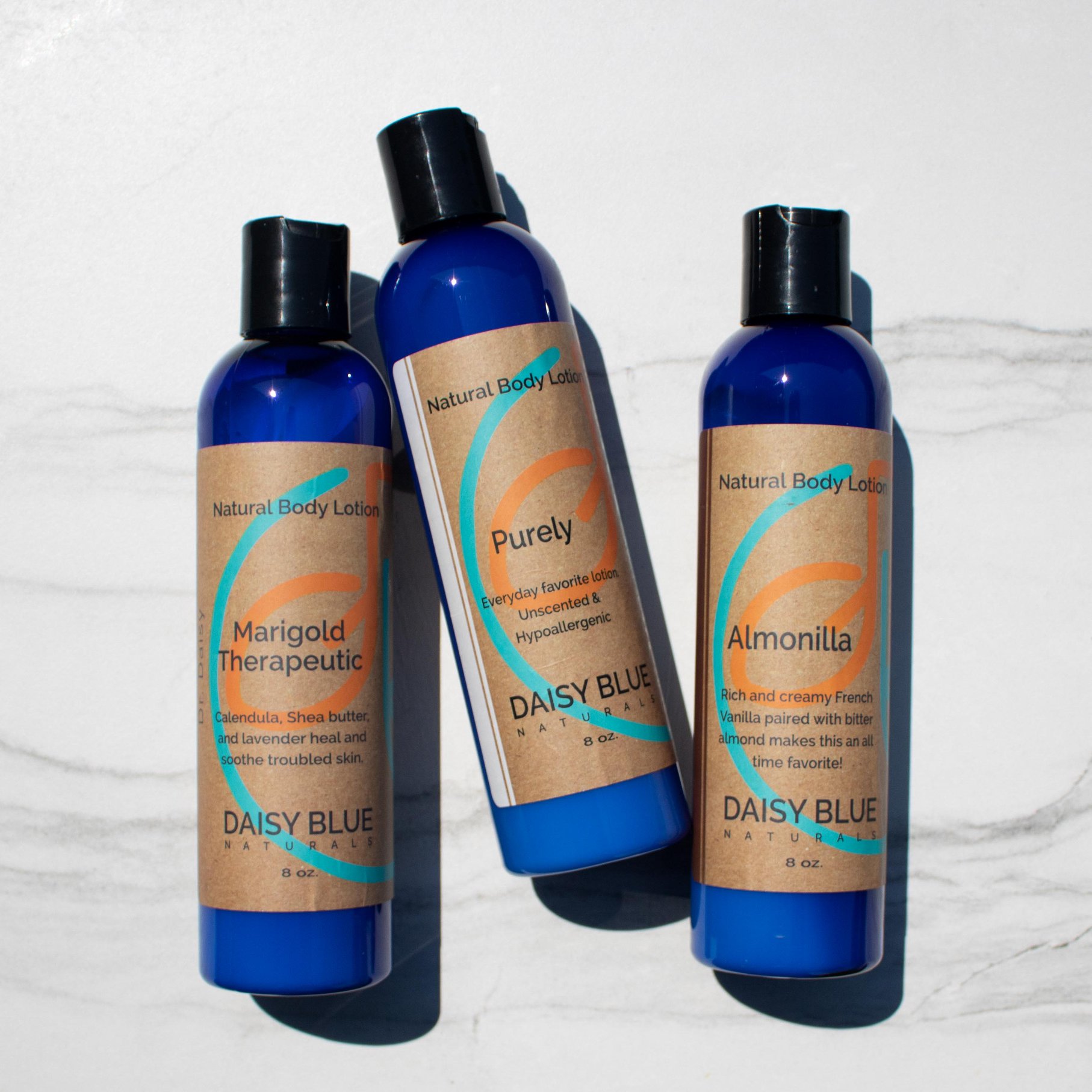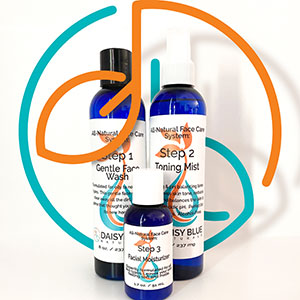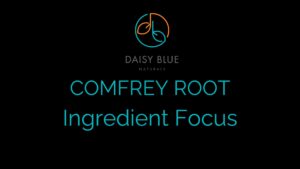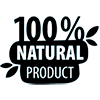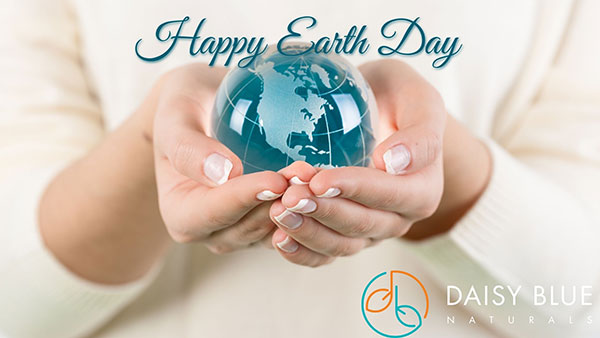
Did you know that Senator Gaylord Nelson representing the state of Wisconsin started Earth Day over 50 years ago, in 1970? The first celebration was a bipartisan creation of a day meant to start a revolution in caring for Mother Earth. Before this time, factories could dump toxic waste into a nearby stream and spew out toxic black smoke from their facility, legally! Not to mention the impact it has had for individuals to make a difference, too.
An article from Homeland Security reminds us that Earth Day is more than just a day for the hippies to celebrate and hug a tree, it is rather a reminder of the global level threat that can and WILL occur if change is not instituted! Read more…
By 1990, more than 140 countries celebrated Earth Day! Not sure how to help our environment? Here are a few simple changes that you can do that will make a difference.
Simple Steps on What You Can Do to Make a Difference!
Wondering which wastes less water – a shower or a bath?
The answer will vary depending on factors such as how long you shower and how high you fill your bathtub. A five-minute shower uses a third less water than a full bath. Here are some other ideas to help you conserve water usage in your home:
- Fix leaks. Even a small trickle adds up to gallons of water each week!
- Put mesh faucet ends (aerators) on all our faucets. This can cut water usage dramatically!
- Use a low-flow showerhead.
- Make sure you have an efficient water heater, and have it routinely serviced.
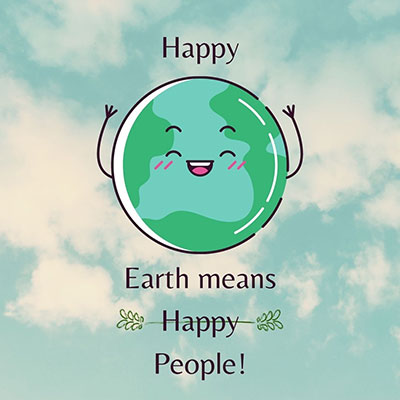
Speaking of bathrooms, the vinyl shower curtain, made entirely out of PVC (polyvinyl chloride), releases dioxins.
Dioxin is a known carcinogen that can disrupt hormonal systems and may cause reproductive and immune system damage. The type of plastics to be aware of is #3 plastic, vinyl, or PVC. Use a cotton or polyester shower curtain instead!
Which razor should I use?
In the United States, over two billion disposable razors are purchased annually. That is a lot of space in a landfill! A better option: a permanent razor that uses refillable blades. Granted, the handle is plastic, but you can use it repeatedly and thereby reduce both your guilt and the garbage.
What about my wardrobe?
Think about buying more natural fibers like cotton, hemp, and wool. They do not generate much static electricity in the dryer, they generally require less – or no- dry cleaning, and because they are made from renewable resources, they can be composted!
FACT: Recycling saves energy: Creating a new aluminum can from scratch takes 95% more energy than making a can from recycled aluminum.
Household Cleaning
In the 19th century, people cleaned with a few everyday materials, like vinegar. Nowadays, we have store shelves filled with a plethora of toxic cleaning agents.
- Use Daisy Blue Naturals handcrafted soaps for cleaning hands. Avoid antibacterial soaps at all costs. These soaps contain triethanolamine and triclosan and have been proven to cause more harm than good because they kill beneficial bacteria as well as the bad stuff and may be leading to super-strains of bacterial resistance to antibiotics.
- Hot soapy water with the addition of our Antibacterial Sanitizer kills food-borne germs! It can also be used to sanitize your hands, cutting boards, knives, and any surfaces that have encountered eggs or raw meat. Wash for at least 20 seconds.
- Baking soda is a mild abrasive. It doesn’t scratch surfaces and it deodorizes. Baking soda can be mixed with the soap/water blend above or mixed with white vinegar.
- With more stainless-steel appliances being sold today, the need for a natural cleaner is needed. Use baking soda and scoop onto damp sponge. Rub the soda on the metal until the surface is clean. Rinse well with warm water and polish dry with a soft cloth. For a quick clean, use vinegar and water, then polish with the cloth.
- White Vinegar is an acid with mild-germicidal properties. It can be used to get rid of mold and mildew, cut grease and clean glass.
- Lemon works much like vinegar but is more difficult to use.
- Vitamin E Body Oil can add shine to wood furniture and floors. Use ½ a teaspoon in a quarter cup vinegar or lemon juice. Test for color first!
- If you are dusting, use a damp cloth. No need for the toxic sprays.
- Salt will clean copper pots and pans and is good for silver too. Mix with equal amounts of vinegar.
- Sponges and rags instead of paper towels. Sponges can be washed in vinegar and used again.
Improve air quality in your home by having plants! All plants work, however, the most effective plants include aloe vera, English ivy, fig tree, potted chrysanthemum, and spider plants.
Clean drinking water. In a world of bottled water, there is a lot of debate on what is healthier. The Natural Resources Defense Council has been reporting for the last 15 years that bottled drinking water is not any safer than tap – and in some cases is tap. Tap water does not leave behind a flood of non-biodegradable and rarely recycled plastic containers, and it most usually flows to us from an energy efficient infrastructure – no trucks or ships required. Our environment does not need the strain of additional plastic bottles. Tap water is regulated more consistently. Environmental Protection Agency rules apply to every public water system in the Country. In addition, you are entitled to the “Water Quality Reports” – also called “Consumer Confidence Reports”, which identify the source of the water and the contaminants found in it. Bottled water companies are under no regulation to report this to you. In fact, most bottled water companies are owned by the same organizations selling soda and other corn syrup-based drinks. Aquafina is a Pepsi brand. Dasani is Coca-Cola. Both brands come from the same source as tap water. Perrier, Pellegrino, and Poland Spring are Nestle. If you are still unsure about your tap water, check out article from the CDC to learn more about filters for your water system.
Become energy efficient!
- Unplug appliances you seldom use, like an extra refrigerator. You may save over $10 per month.
- Unplug your chargers when you are not charging.
- Use power strips to turn off TV’s, stereos, and other equipment. Even when these items are on ‘standby’, consumption can be equal to a 100-watt lightbulb that is on continuously.
- Set your computer to hibernate after 30 minutes of non-use, and to sleep mode for longer periods of inactivity. The ‘hibernate’ mode turns the computer off in a way that doesn’t require you to load everything when you switch back on. Setting your computer to hibernate instead of shutting it down saves energy and is more time efficient. When you are done for the day (or the weekend) shut it down.
- Control your temperature! An example would be to set your thermostat to 68°F during the day, and 55°F when going to bed. During the summer, set your thermostat to 78°F or higher. I personally LOVE my Nest thermostat, which offers ECO friendly settings and can be controlled from my phone.



